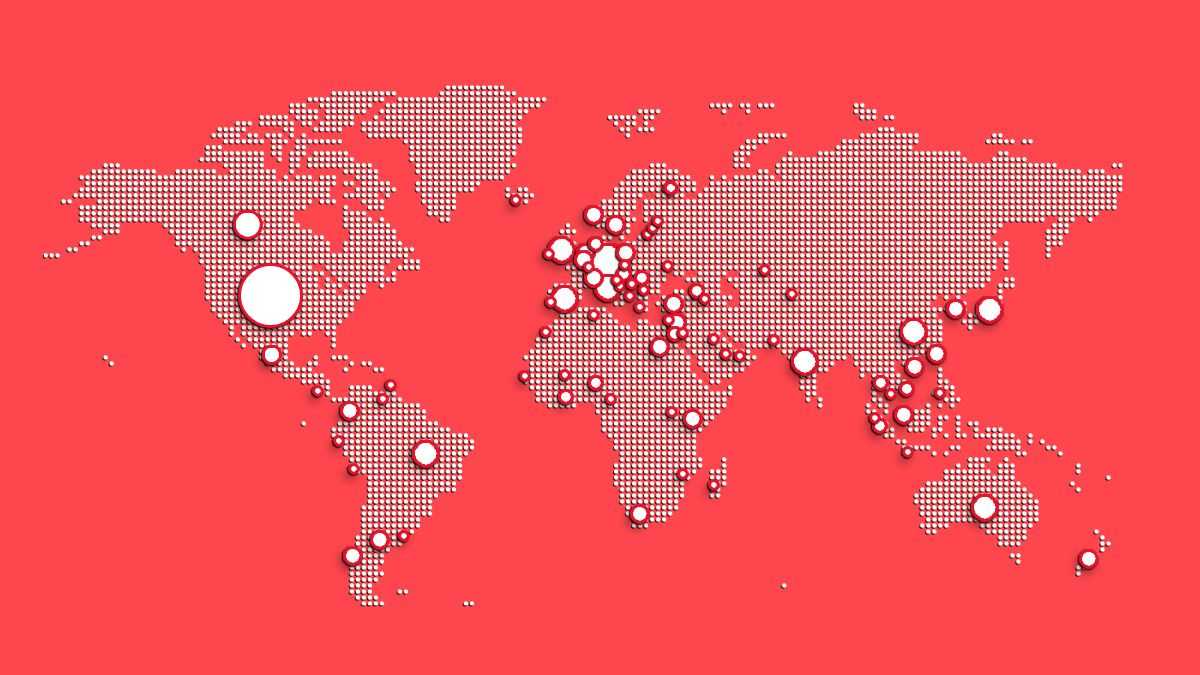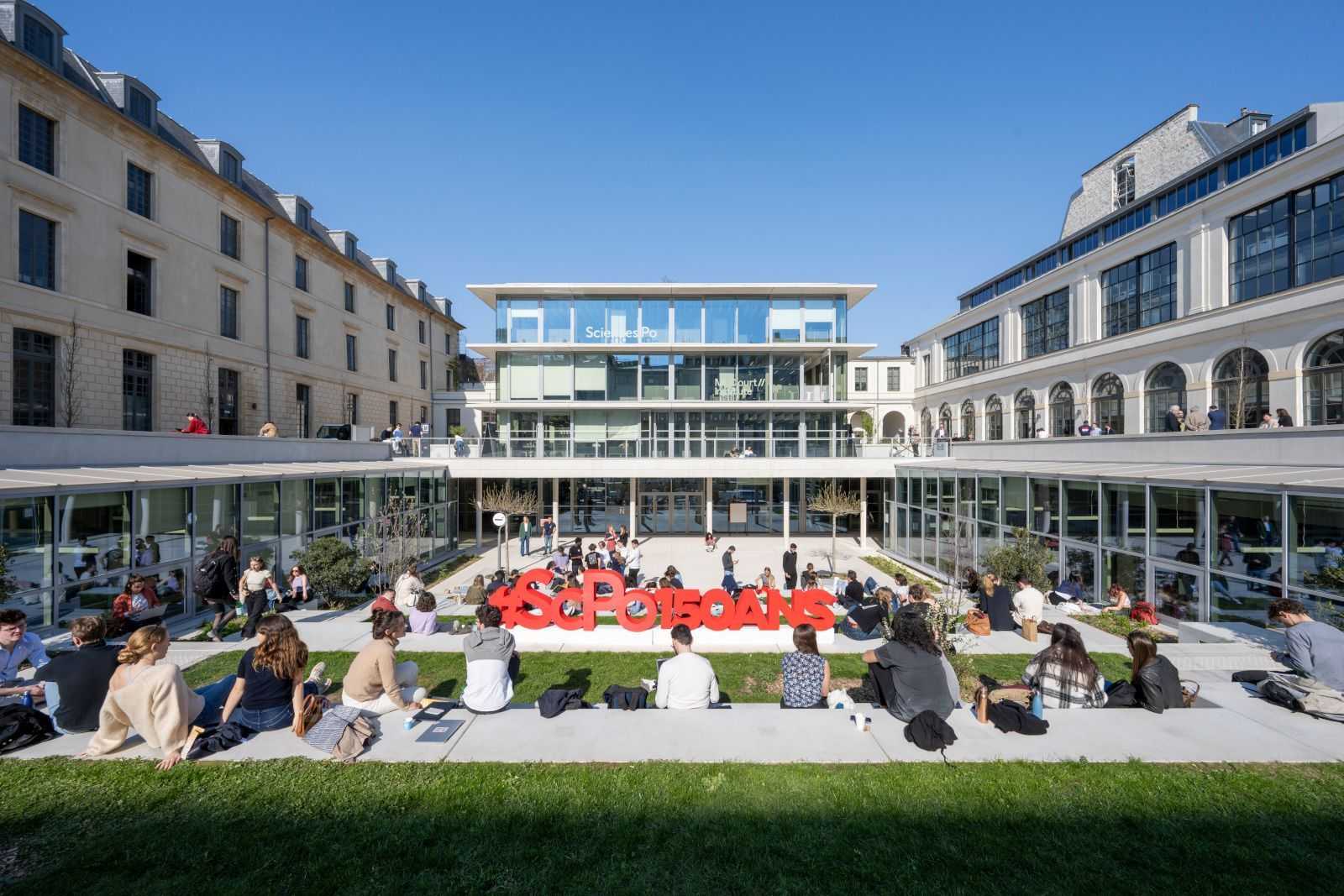
Home>International>Sciences Po and the world>Middle East & North Africa
Sciences Po and the Middle East & North Africa
Sciences Po has particularly strong ties to the vast region stretching from North Africa to Iran. This is reflected in a large number of university exchange partnerships, and in a rich research output: with around 20 researchers specialising in the region, Sciences Po is one of the leading European universities for Middle Eastern and North African Studies.
The Middle East and North Africa (MENA) region is also home to the largest network of French and French-speaking lycées in the world. Sciences Po has a very active outreach policy aimed at these schools specifically, as well as at English-speaking schools and major universities.
16 nationalities in the MENA region are represented within our student body (excluding executive programmes), while Sciences Po very frequently rates as the most popular exchange destination in France and Europe for students at our partner universities.
Sciences Po's partners in the Middle East and North Africa
The MENA region boasts a particularly diverse range of universities and programmes, with a number of multidisciplinary universities and business schools offering courses in English, French, Turkish, Arabic and Hebrew. Intensive language courses in Arabic and Hebrew are also available for students interested in working or conducting research in the region, or who are preparing for civil service recruitment examinations.
Sciences Po has established partnerships with 33 universities and institutes, in 12 countries throughout the region: Morocco, Tunisia, Egypt, Lebanon, Jordan, Iraq, Israel, Palestine, Turkey, the United Arab Emirates, Kuwait and Qatar. These partnerships are principally focused on facilitating exchange programmes for students, researchers and professors.
Among its partners, Sciences Po has developed especially dynamic relationships with certain universities, including Université Mohammed 6 Polytechnique (UM6P) in Morocco, the American University of Cairo in Egypt, the American University of Beirut and Université Saint-Joseph in Lebanon, Al Quds University in Palestine, Tel Aviv University in Israel, Bogazici University in Turkey, the Doha Institute in Qatar, and the Anwar Gargash Diplomatic Academy in the United Arab Emirates.
The popularity of the MENA region as an exchange destination for our students increases steadily year on year. Almost 140 Sciences Po undergraduate and Master’s students opt to study in the region annually, the majority in Egypt, Israel and Turkey.
Academic programmes relating to the Middle East and North Africa
Several of Sciences Po’s academic programmes focus on the MENA region.
- At undergraduate level, the Mediterranean-Middle East Minor on our Menton Campus explores political, economic and social issues specific to countries in or around the Mediterranean, the Middle East and the Persian Gulf.
- At Master’s level, the Paris School of International Affairs (PSIA) offers students a choice of programmes specialising in each of the five continents, including a Middle Eastern Studies regional concentration.
- Finally, the Sciences Po School of Research also offers a MENA regional specialisation as part of the Master's in Political Science, Comparative Politics Major.
Research
Our research into countries of the region is particularly dynamic, with around 20 members of our permanent faculty working within Middle Eastern and North African Studies. These researchers are primarily based at the School of Research and the Centre for International Studies.
Sciences Po also participates in visiting professorship schemes with two universities in the Gulf region: Anwar Gargash Diplomatic Academy in the United Arab Emirates and the Doha Institute in Qatar.
Finally, Sciences Po supports doctoral research into the region through Erasmus+ grants for fieldwork in Egypt and Lebanon.
Executive Education
With the help of region-specific resources, Sciences Po Executive Education has developed a range of programmes aimed at public and private sector leaders, managers and executives in the MENA region:
- The Certificat entreprendre et réussir (Lead and Succeed Certificate) (Fr)
- Corporate Governance Certificate (Fr) for Senior Executives in Morocco, taught in conjunction with Université Mohammed VI Polytechnique (UM6P)
- Custom certificate programmes
Strategic Projects
The Erasmus+ mobility programme is a strategic tool ensuring all students have equal access to study and internship opportunities abroad, which is a strategic priority for Sciences Po. Every year, as determined by the grants available, Sciences Po issues Erasmus+ funding to students (at undergraduate, Master’s, and PhD level) and professors who have chosen to study or work in the MENA region.
A large number of Erasmus+ grants are also allocated to incoming exchange students and professors from our partner universities in the MENA region (Morocco, Egypt, Israel, Palestine, Lebanon, Jordan, Turkey and Iraq).
Every year, two Sciences Po students (of each gender) take part in the International Summer University for Intercultural Leadership on campus at Bahçeşehir University in Istanbul, Turkey. This annual programme, sponsored by UNESCO, is coordinated by the Paris-based NGO.
Find out more about Project Aladdin.
There is a vast range of student associations relating to the Middle East and Africa at Sciences Po. They organise a wide variety of events and activities, from conferences and international negotiation simulations to field trips and arts or cultural activities.
Last but not least, our network of alumni from or interested in the MENA region is equally diverse. It is divided into different circles and national branches: the Franco-Tunisian Circle; the Mediterranean and Middle East Circle; Algerian, UAE, Lebanese, Moroccan and Turkish national branches.
Key figures
31
University partnerships
700
students from the MENA region at Sciences Po every year
140
Sciences Po students studying abroad and 140 on an internship in the region every year
5%
of recent Sciences Po graduates employed abroad work in the MENA region


